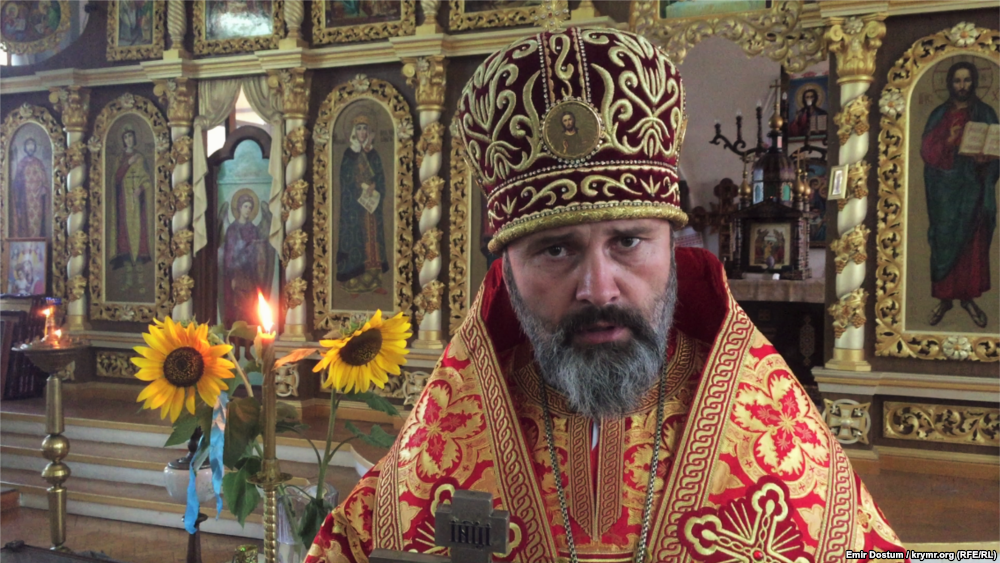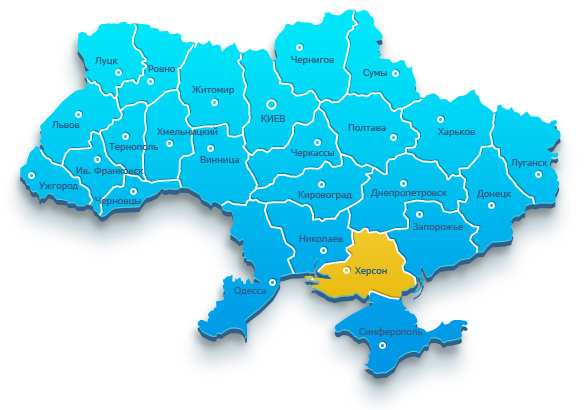The Ukrainian representative at the UN Security Council voted against Israeli settlements in Jerusalem, which led to controversy and a diplomatic scandal.
The cancellation of the visit of Ukrainian Prime Minister Volodymyr Groysman to Israel has provoked a strong reaction in Ukraine. During the ongoing scandal, all possible problems in the Ukrainian-Israeli relations have been dragged to the surface. Many experts in the Arab-Israeli conflict, as well as those who consider themselves experts, have expressed themselves in social media.
But the storm is not limited to the social networks. Politicians have been divided in their reactions as well. Some have criticized the government and the Ministry of Foreign Affairs, while others believe the diplomats have acted properly.
Resolution on the settlements
The bone of contention was the vote on December 23, for the UN Security Council Resolution No. 2334, which states that the UN Security Council believes that " Israel’s establishment of settlements in Palestinian territory occupied since 1967, including East Jerusalem, had no legal validity, constituting a flagrant violation under international law and a major obstacle to the vision of two States living side-by-side in peace and security, within internationally recognized borders."
Similar resolutions are submitted for consideration regularly. However, they were previously blocked by the US, using its veto. This is what happened in 2011.
This time, instead of using its veto, the US abstained from voting, effectively giving the "green light" for the adoption of the document. This is the result of the policies implemented in the Middle East by the outgoing president of the United States, Barack Obama, and his administration.
Why Ukraine supported the resolution
The position of the Ukrainian Ministry of Foreign Affairs is based on the argument that taking Crimea into account, Ukraine simply could not and had no right to vote otherwise. "Our state has consistently stood for the respect of international law by everyone and everywhere, since, in our own case, we have experienced the tragic consequences that result from its violation," the official Ministry statement declared.
To decipher: Ukraine's position in the international arena regarding Crimea is based on the assertion that Russia is a gross violator of international law. Most countries have agreed with Ukraine on this matter still in February 2014 by supporting the resolution of the UN General Assembly on the territorial integrity of Ukraine. Israel did not support that document (it did not participate in the voting).
According to Ukrainian journalist Andriy Vasyliev, who has been reporting on the UN for several years, "to claim that Ukraine should have voted 'against' only because Israel is 'our ally' would have completely disregarded the principles of international law. The members of the Security Council must make decisions based solely on security concerns and not on the basis of who is our 'ally' or solely in its own interests, as does the Kremlin," he said.
Therefore, in matters pertaining to occupied territories, Ukraine has no other option than to vote against occupation. In fact, it was this very violation of international law that was the reason for imposing the first sanctions on Russia.
"In my personal opinion Ukraine could not vote differently since the settlement of occupied territories is a direct conflict between Israel and Palestine. If Israel does not cease activities on the occupied territories, one can forget about the peace process between Israel and Palestine," Vasyliev says.
He also cites the opinion of his source at the UN Security Council that "the Israeli settlement activity in the occupied territories is the main aggravating factor hindering the peace process in the Middle East. Furthermore, it is a violation of international law."
It is a matter of violating Article 8 of the Rome Statues of the International Criminal Court and, in particular, paragraph 2 (b) (viii), which directly calls the transfer of one's own population to occupied territories a war crime.
"I think that no one in Ukraine would like for Russia to begin construction in Crimea or Donbas, isn't that right?" Vasyliev asks. "From the perspective of the Rome Statute, Israel's actions in the occupied territories and the Kremlin's actions in Crimea are war crimes. It is quite another thing that a similar resolution regarding Crimea cannot be passed in the Security Council because Moscow immediately vetoes it. This is the weakness of the Security Council," he says.
Why not abstain?
Those who accept the argument regarding Crimea have another objection: why didn't the Ukrainian representative abstain, as did the US?
For Ihor Semyvolos, the director of the Center of Middle Eastern Studies, "there is a difference between abstaining generally and abstaining in this case. "If we had abstained, that would have meant 'against.' It would not have saved the Israelis, but we would have appeared inconsistent and biased, " he explains.
The Israeli side and its supporters are putting forth an old argument in this case -- namely, that the situation regarding the annexation of Crimea and the settlements on the territories of East Jerusalem cannot be compared. They say that these lands were not occupied, that this is (Jewish) historical land, that Jordan voluntarily gave it up, and so on and so forth.
One can offer a counterargument, but this is a debate that leads nowhere. It has been waged for many years already, and the Palestinians and Israelis have a longstanding and firmly formed opinions on the issue.
However, it is a fact that, along with Ukraine, all the members of the Security Council supported the resolution except for the US, whose "abstention" was an actual vote "for." And when we speak of the insult to Ukraine and the cancellation of Groysman's visit, we forget that Israel's reaction had a much wider context.
Netanyahu's violent reaction
The head of the Israeli government Benjamin Netanyahu, who is also the acting minister of foreign affairs, instructed the Ministry of Foreign Affairs to minimize working contacts with the 12 countries which, according to Israeli media, "voted against Israel in the UN." The media also reported that Netanyahu has forbidden his ministers to meet with colleagues from these countries and to visit them. The Ynet news website confirms that the ban extends to Russia, Ukraine, Great Britain, Spain, and Japan. The ban will be in effect for three weeks.
Actually, except for Russia, this is not bad company. Netanyahu has also urged Israeli citizens to limit travel to these countries.
Additionally, Netanyahu has stopped funding five UN organizations he considers "especially hostile to Israel" and has warned there would be additional steps.
"Israel has decided to reconsider its position to the organization that had actually established it (the state's independence was proclaimed on May 14, 1948, on the basis of the UN General Assembly Resolution No. 181 dated November 29, 1947). This is unprecedented," Bohdan Yaremenko, chairman of the board of the Maidan of Foreign Affairs non-profit wrote on his Facebook page.
The Israeli government accuses the US of coordinating the vote. "From the information that we have, we have no doubt that the Obama administration initiated it, stood behind it, coordinated on the wording and demanded that it be passed," Netanyahu said.
Israel summoned the US ambassador to Israel for an explanation. The other ambassadors, including the Ukrainian one, were summoned as well. "According to the BBC, "summoning ambassadors for explanations during the Christmas holidays is an unusual measure and indicates the seriousness of Israel's claims."
It is already clear that Trump is returning to the format of relations with Israel that existed before Obama's change of direction. In other words, the countries will appear as a duo and there will be no discord similar to the resolutions on settlements. This is why the Ukrainian side tried to postpone the vote to have it take place under the Trump administration when there would definitely be a veto. However, the US categorically refused to postpone the date.
"According to my source, Jerusalem had asked Washington to veto this resolution, but the most Samantha Power could do was to abstain, since the vote 'against' would negate the Rome Statute," Andriy Vasyliev explained. Earlier, Obama's administration also acted in unison with Israel. "The US line of conduct changed precisely because of Crimea. Because it was a precedent," he said.
Has everything been lost and damaged?
When it comes to the consequences of the vote in the UN Security Council, it is important to keep in mind that Israel has not been an ally of Ukraine. We are referring to the government level, of course, not about the cooperation on the level of volunteers and public diplomacy.
"For Netanyahu, relations with Russia are much more important, and he will not quarrel with Russia because of us," Ihor Semyvolos pointed out.
Yes, Ukrainian soldiers are being treated in Israel. There are certain plans for military cooperation and the training of Ukrainian physicians is taking place. But we should not forget about the Israeli drones that are being used by the terrorists of DNR ("Donetsk People's Republic") and LNR ("Luhansk People's Republic") and about the scandalous speech by the Israeli president from the rostrum of the Verkhovna Rada where he called Ukrainians and the OUN accomplices of the mass killings of some 1.5 million Jews.
Three times Israel failed to vote for Ukrainian resolutions in the UN (we have already mentioned one of them). Yes, it supported the UN resolution of December 19, which recognized Crimea as occupied territory and the Russian Federation as the occupying country. However, it is unlikely this was a gift to Ukraine. It was more like a warning to Moscow regarding the settlement resolution.
Similarly, it is useless to regret that Israel does not recognize the Holodomor as genocide. According to Ihor Semyvolos, this question was removed from voting in the Knesset still in November. There is a similar situation regarding an agreement about a free trade zone. This issue has been discussed for years along with the question on visas.
There is a problem with the Ukrainian misunderstanding of Israeli reality. Some idolize this country excessively and compare the Palestinian terrorists with the action of the LNR and DNR fighters. But like any analogy it suffers from a number of inaccuracies.
"We have this image of Israel as a heroic country that we want to resemble, "Semyvolos says. "This is attractive image, and I like it. But it is very different from the real Israel and furthermore from the policies pursued by this Middle Eastern country," he concludes.
Netanyahu is not all of Israel.
Netanyahu's position on Ukraine has already been sharply criticized by one of the leaders of the largest opposition force in the Knesset, the former minister of foreign affairs Tzipi Livni. The leader of the Hatnua party ( which is included in the Zionist Camp bloc) has sharply criticized the cancellation of the visit of the prime minister of Ukraine Volodymyr Groysman to Israel. According to Livni, Israel's prime minister has a pro-Kremlin position. He had appealed to Russian President Vladimir Putin to veto the Security Council resolution and was refused.
"Netanyahu is showing helplessness again. He does not control the situation and does not understand the effectiveness and benefits of his reactions for Israel," Livni said.
Actually, we forget that the voting in the Security Council is a personal defeat for Netanyahu. Let us remember, once again, that not only Ukraine voted for the resolution. It was approved by all the other members of the Security Council, even the US (by refusing to veto it). Groysman was unlucky that his visit was scheduled specifically for December 27-28. If the visits of the prime ministers of Great Britain, Spain, Japan or any other country that supported the resolution had been planned for these dates, they would have suffered the same fate.




